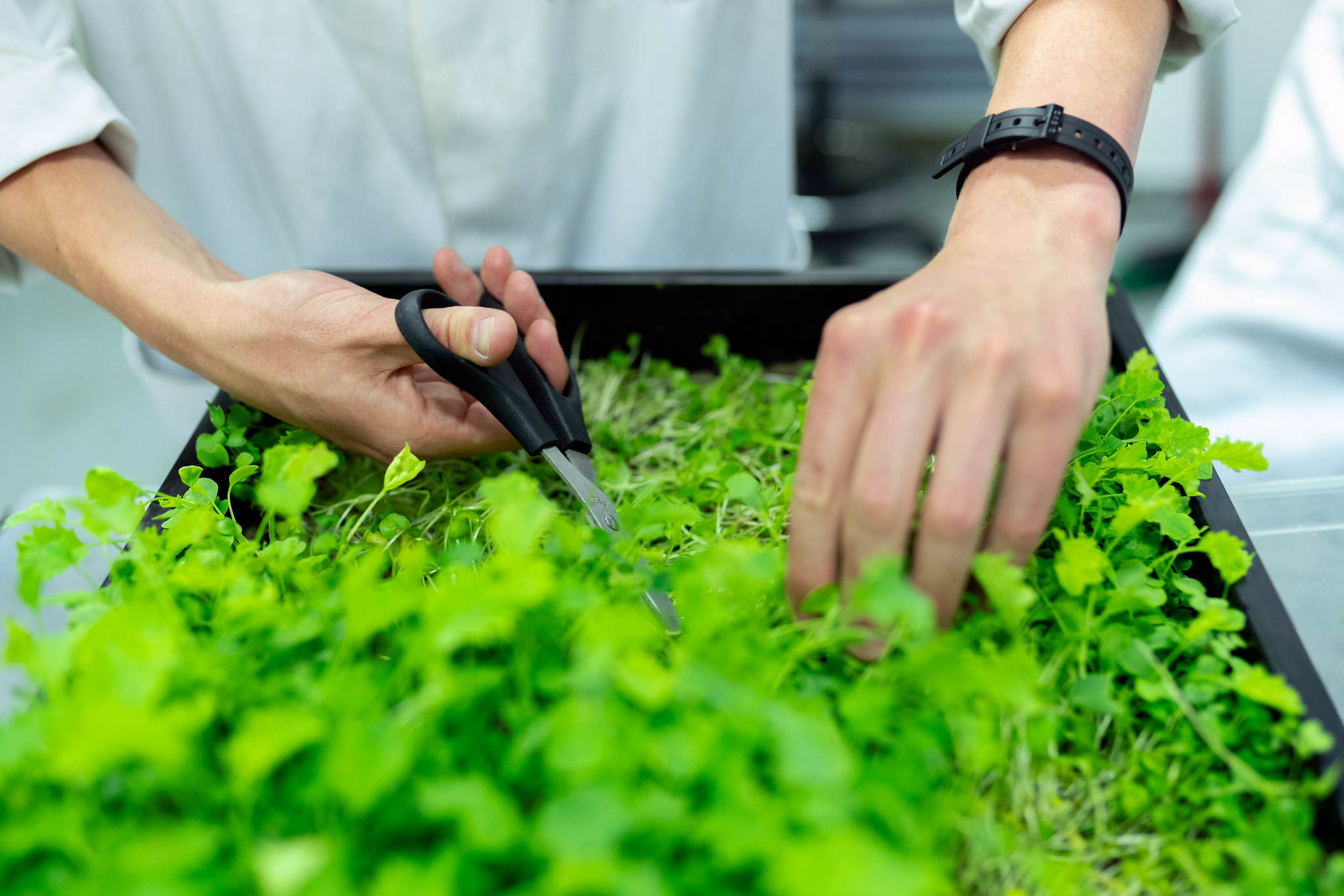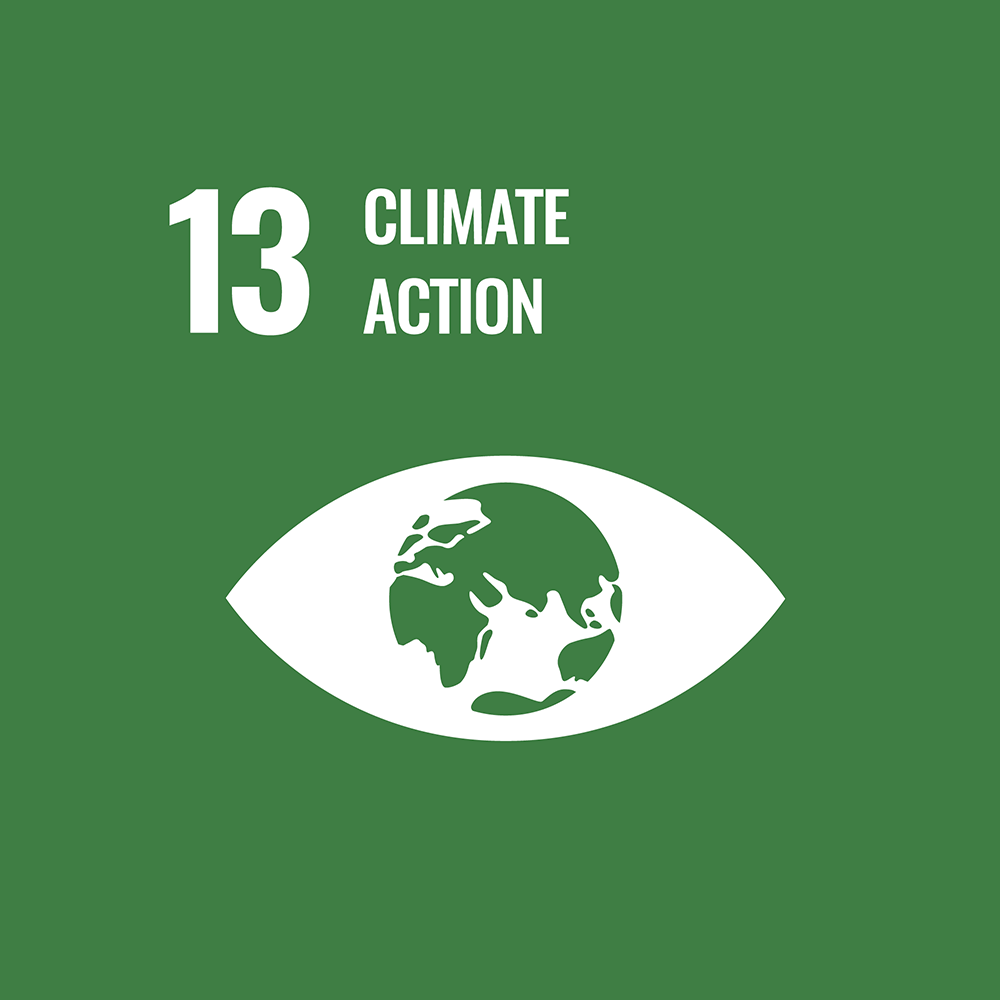Climate change is transforming not only the environment, but also how humans live on the planet. It is increasing the frequency of disasters, damaging ecosystems, threatening global food security, and more. Sustainable Development Goal 13 (SDG 13) sets out aims for urgently addressing climate change and building a more resilient future.
Engineering, as a field that seeks solutions to complex problems, is uniquely suited to create solutions for climate change. Across the Frontiers network, engineers and innovators are addressing the complex problem of climate change locally, nationally, and globally.
Case study
Farmers drive food systems forward, but they too are facing growing impacts of climate change, from disasters to rising temperatures, social instability, and more. To help build more resilient and sustainable food systems, farmers need help. Benjamin Kwasi Addom, session chair at the ‘Engineering inclusive economies’ symposium, is dedicated to making technology and innovations available to smallholder farmers.
For example, access to drought-resistant seeds, insurance services, and smart weather warning tools are already being used across the globe. However, they are often project-based, short-lived, and not inclusive to the most vulnerable communities.

To improve access, Benjamin calls for more widespread collaboration – as is fostered through Frontiers symposia – to deliver what farmers need: “To see massive impact of these solutions and to provide sustainable and inclusive services for farmers and other stakeholders, there is a need for ecosystem coordination.”
Moving forward, Benjamin sees a huge opportunity in agricultural data. It can provide the foundation for digitalisation in the sector, but it is currently underused due to a lack of data infrastructure. If this is addressed, it can result in better-informed policymaking in agriculture and climate.
Insights
Inclusive and resilient economies
From the COVID-19 pandemic to the growing impacts of the climate emergency, the last several years have seen a confluence of crises, creating a tenuous situation for millions around the globe. At the same time, the Sustainable Development Goals (SDGs) risk slipping out of reach by 2030. Participants of the Frontiers ‘Engineering inclusive economies’ symposium came together to discuss the challenges for greater financial inclusion and potential solutions.

Throughout the discussions, the Frontiers community raised key insights on how to simultaneously promote economic inclusivity and climate action:
- Climate change is one of the many barriers to financial inclusion that marginalised populations face. Low-income communities are disproportionately affected by climate shocks, which is exacerbated when there is a lack of social safety net policies. Network systems can help build resilience in the face of these inhibitors and against the impacts of climate change.
- Artificial intelligence can help address complex issues such as climate change, for instance, by connecting large data sets and improving the understanding of infrastructure usage. This can help decision-makers develop informed and optimised plans.
- Building an inclusive economy requires addressing a wide array of realities, including different climate situations. Involving local populations in the planning and execution of solutions can help ensure their needs are properly met.
SDG 13 in action
Forest conversion to agriculture for staple crops or cash crops is the biggest cause of deforestation in the tropics, especially in Africa. As tropical economies develop, hard choices must be made between conservation and development goals to balance trade-offs. In her presentation, Sarobidy Rakotonarivo examined the ways that engineers and development professionals can help bridge the gap between the interests of farmers, communities, and policymakers. In turn, more sustainable practices can be used to preserve environments.
An integrated approach to environmental management requires a deep understanding of farmers’ decision-making and how they respond to alternative management policies. In Sarobidy’s experience, researchers can utilise gaming for local farmers to understand their land-use decisions, attitudes, and socio-economic characteristics. This information can then be used to better integrate local needs in the design of interventions or management techniques. As set out in SDG 13, improving education and awareness is a critical step towards climate action.
“Local people and rural communities and smallholder farmers should be part of the solution, that way solutions are most effective and equitable.” Sarobidy Rakotonarivo, session chair for the Frontiers symposium ‘From seeds to needs: regenerating ecosystems services to halt the biodiversity crisis.’
Resources
The Frontiers community has identified several helpful resources for climate action, inclusion, and diversity:
- Impact integrator course from Walcott Communications
- Gender analysis and training, UN Women
- Challenges and Strategies in Place-Based Multi-Stakeholder Collaboration for Sustainability: Learning from Experiences in the Global South
- Big data for smallholder farmers: the case of MUIIS UGANDA
- National Financial Inclusion Strategies: Current State of Practice (2022). Integrating Gender and Women’s Financial Inclusion into National Strategies (V.2)
